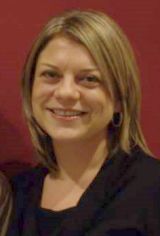Awards for Achievement
Recognising achievementParker Prize 2024
About the Prize How to nominate Entry Form (Word Doc) Winners experiences About Ken ParkerExcellence Award 2023
About the Award How to enter Entry Form (Word Doc) Past Winners Winners experiences About ProsperThe PRS Effectiveness Award Winner 2009
The 2009 Award was won by Amelia Coulam and Andrea Higgins of Green Light Research for their work on "Making Memorable Moments" at Center Parcs.
As researchers we’re forever striving to design the project that will deliver the wow-factor… make a difference… something we can road trip around the world, presenting at the most influential conferences. But, alas, it can be really difficult to achieve!
Our creativity is so seldom unleashed, and our potential so often left untapped, mainly because of limited timelines, budgetary constraints, or even just the nature of the objectives we’re delivering on. So when a brief comes along that leaves you scratching your head, possibly even keeps you awake at night, it usually leads to an interesting research design and (fingers crossed) makes a notable impact on the client’s business.
A simple task?
On the face of it, our task sounded simple – inform and direct the development of a Service Excellence Programme for Center Parcs. The reality, however, was rather more complex; an abstract subject, segmented sample, and diverse set of objectives. Researching ‘service’ presents its own challenges. It’s an intangible subject, but also a subject of extremes. We can all think of excellent and poor service but what is an acceptable level of service, and how do our expectations vary by category? More on that later.
We had the usual sampling considerations – representing all consumer types, and employees in this case – but we also had an additional consideration. We needed to talk to stakeholders at Center Parcs Head Office about what could actually be changed, feasibly achieved, and what represented success. This became an additional research element in itself, a ‘pre-stage’ where we held workshop-style meetings with stakeholders.
Who we were working with at Center Parcs and how we approached the relationship ultimately contributed as much to the success of this project as the research design itself. Our main contact worked in marketing, but was delivering to a number of internal clients in human resources, other head office departments, and the site managers; a variety of roles, priorities, needs, and expectations, not to mention research literacy. We knew that if they weren’t on board from the outset, it would be very difficult to encourage adoption of our recommendations later on. We arranged to meet.
It may not always be advisable to walk into a meeting, the newly appointed agency entrusted to inspire and help direct cultural change within an organisation, put your tome of a proposal to one side and go back to the beginning but it was the best thing we could have done.
We needed to hear from all stakeholders at Center Parcs, in their words. At this stage it was confined to senior management, but ultimately, all levels would be involved. We met with them to define the parameters, identify gaps, flag what couldn’t be changed, and uncover the issues that were already on their radar.
Through getting to know them, their issues, and their business, through listening and being willing to adapt to truly meet their needs, we were able to develop a research programme that everyone felt involved in.
Having discussed service, and what it meant from all angles – customer, potential customer, service staff, office staff, management – our next challenge was how to tackle it effectively with consumers. We really needed ‘actionable outputs’. We knew that looking at Center Parcs service in isolation would be like conducting the research in a vacuum so we had to broaden the scope.
Consumers were asked to keep diaries. The brief was broad: we required examples of good and bad service from the whole family, what service meant to them, their expectations around service and how they varied according to where they were, who they were with, the occasion, the expense, the anticipation, etcetera. We wanted to know about any service at all, from the post office to their local gym, from in-flight stewards to a waiter in a restaurant abroad. Anything.
Consumers got really involved, providing very individual, detailed accounts of their experiences, supplementing them with photos and video. This formed the pre-task to a large-scale, multiple-methodological, multi-target approach to the main body of research where we explored Center Parcs at a more specific level. Not only did the pre-task prepare respondents and encourage thinking, it produced extensive contextual materials for us to use at the analysis stage.
The analysis was tricky. We had so much information, in so many formats, gathered from so many different people. It was a mammoth task facilitated by our detailed understanding of not just the business objectives but the business itself. We had gained relevant operational understanding from experiencing the Center Parcs brand first hand. We had to make it Center Parcs focused and to ensure that Center Parcs embraced the findings and ran with them.
It was evident that disseminating the findings could not be done via PowerPoint presentation alone; interaction was vitally important so we proposed immersion rooms representing the different typologies and put together a handy booklet that would be longer-lasting than our face-to-face debrief.
Complaints down: staff morale up
The research generated insights that led to ‘Making Memorable Moments’, a philosophy and training programme representing major cultural change within Center Parcs. Guest feedback since the programme launched has been very positive. Complaints are down and staff morale is high.
The main factors contributing to the success of this project were: engaging with our client from the outset and truly understanding their issues, sensitivities and objectives – exploring them fully together. It was also delivering the findings in a format that was easy to understand, was completely relevant to their business, specific not generic, and presented feasible ways forward.
Helen Horner, Marketing Manager at Center Parcs commented: “The findings were incredibly detailed and more far-reaching than we had anticipated, and have led the way to bringing change to our business because it’s now based on what our guests need and want.”

Amelia Coulam
Green Light Research

Andrea Higgins
Green Light Research

